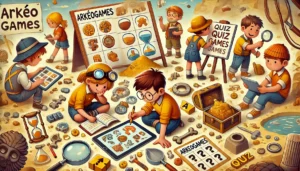During the 17th meeting of the European Association of Archaeologists (EAA) on September 15th, 2011 in Oslo, Dr. Jean-Olivier Gransard-Desmond, archaeologist, and Nathalie Maximin, a lawyer specialised in commercial law and contract law, presented “Ethics and archeology, between regulation and moral duty”, the first results of one of the main work in the association project of ArkéoTopia®, an alternative way to archeology.
Abstract
Ethics and archaeology: between regulation and moral obligation
Without going back to the time of Hippocrates, the archaeological community has not waited for current political and scientific events around questions of biology and nanotechnology before getting interested in this subject. Already in 1961, a group of American archaeologists published an article on questions of ethics and archaeology. This interest is easily understandable in the United States where as early as the 1930s, ethical charters took on an important place within organizations, whether in private enterprise or in foundations.
There are many reasons for this:
• increasing globalization has made national legislation inefficient and impossible at the international level;
• organizations have preferred to anticipate a heavy-handed intervention by the state, by putting their own order in society; and
• these organizations have also reacted by demonstrating to the public their desire to communicate and commit to socially correct values for all.
The recent reaction of the French government to journalists demanding the drafting of a deontological charter shows the importance of being able to anticipate the reactions of a state if one wants to take charge of one’s own sphere of expertise.
Whereas the above considerations were principally the domain of business, we can recall the the Physician’s Oath of 1948 after the dropping of the first nuclear bomb, which showed the importance of this type of approach from the perspective of the scientific community. Working within existing charters but with the help of lawmakers, the archaeological community will draw upon one or more tools that would permit it to support not only the public but also the existing legal mechanisms, be they moral or regulatory.
For this reason, in January 2010, ArkéoTopia officially launched its initiative for archaeological ethics, by participating in the Sciences and Democracy World Forum. A task force was formed and a summary of the literature was carried out under the leadership of Nathalie Maximin, a lawyer specialized in business and contracting law, and by Dr. Jean-Olivier Gransard-Desmond, an archaeologist. The objective was to make an inventory of what has been done in archaeology in order to establish the historical link between ethics and archaeology.
This initiative will permit us to measure the limitations of existing codes in archaeology and to define the parameters of the work to be done. On the one hand, we will gain a better understanding of the issues and identify the principal documents currently used and on the other hand, we will establish a list of documents and codes developed in other areas.
Based on the results of the summary that we will present, we will be able to determine what has motivated the interest of the archaeological community and thus be able to show the current limitations of the codes currently in force. Given these limits, we will propose solutions found within ArkéoTopia and the benefits that the profession will gain in deploying them – at the scientific level as well as in training students in archaeology, politics and social interaction.
Download the PowerPoint under pdf format (7,2 Mo)
You want to know more on…![]() ArkéoTopia, read Brief Presentation of ArkéoTopia or write to us at contact@arkeotopia.org.
ArkéoTopia, read Brief Presentation of ArkéoTopia or write to us at contact@arkeotopia.org.![]() the EAA meeting program 2011, see www.eaa2011.no where you will find also the ArkéoTopia communication.
the EAA meeting program 2011, see www.eaa2011.no where you will find also the ArkéoTopia communication.![]() the EAA in general, see www.e-a-a.org/.
the EAA in general, see www.e-a-a.org/.



